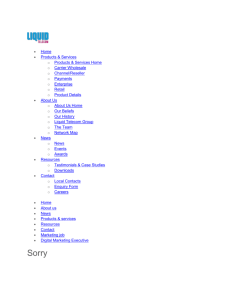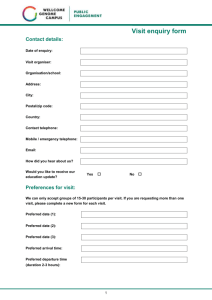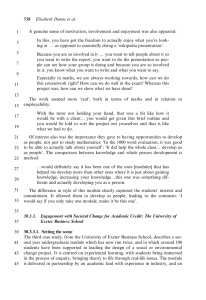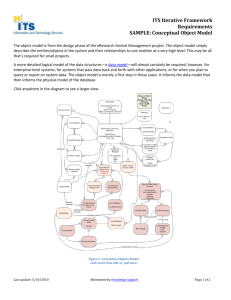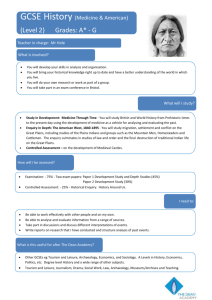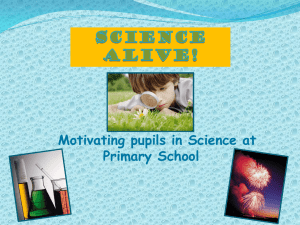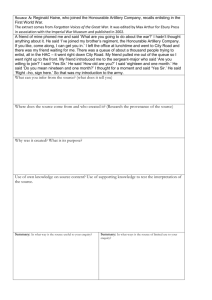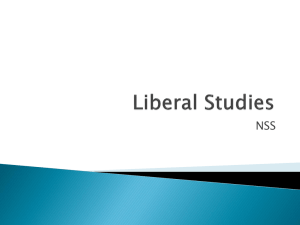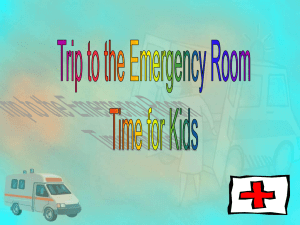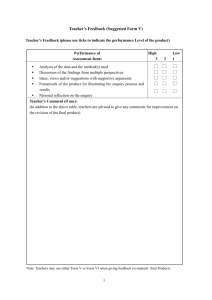document
advertisement
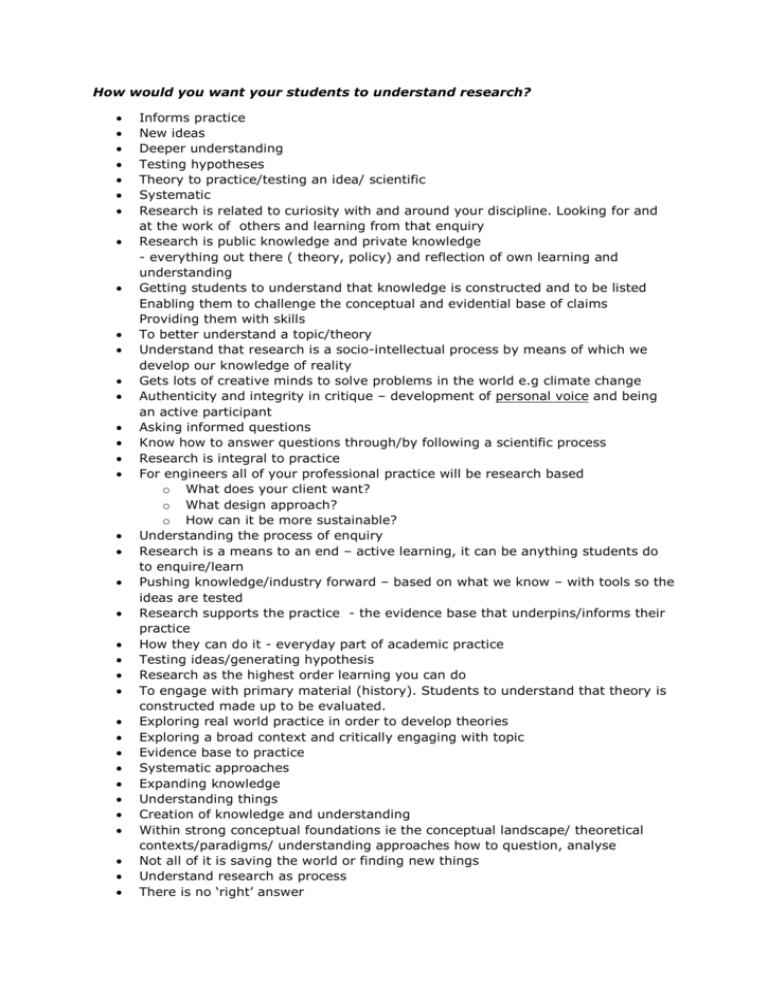
How would you want your students to understand research? Informs practice New ideas Deeper understanding Testing hypotheses Theory to practice/testing an idea/ scientific Systematic Research is related to curiosity with and around your discipline. Looking for and at the work of others and learning from that enquiry Research is public knowledge and private knowledge - everything out there ( theory, policy) and reflection of own learning and understanding Getting students to understand that knowledge is constructed and to be listed Enabling them to challenge the conceptual and evidential base of claims Providing them with skills To better understand a topic/theory Understand that research is a socio-intellectual process by means of which we develop our knowledge of reality Gets lots of creative minds to solve problems in the world e.g climate change Authenticity and integrity in critique – development of personal voice and being an active participant Asking informed questions Know how to answer questions through/by following a scientific process Research is integral to practice For engineers all of your professional practice will be research based o What does your client want? o What design approach? o How can it be more sustainable? Understanding the process of enquiry Research is a means to an end – active learning, it can be anything students do to enquire/learn Pushing knowledge/industry forward – based on what we know – with tools so the ideas are tested Research supports the practice - the evidence base that underpins/informs their practice How they can do it - everyday part of academic practice Testing ideas/generating hypothesis Research as the highest order learning you can do To engage with primary material (history). Students to understand that theory is constructed made up to be evaluated. Exploring real world practice in order to develop theories Exploring a broad context and critically engaging with topic Evidence base to practice Systematic approaches Expanding knowledge Understanding things Creation of knowledge and understanding Within strong conceptual foundations ie the conceptual landscape/ theoretical contexts/paradigms/ understanding approaches how to question, analyse Not all of it is saving the world or finding new things Understand research as process There is no ‘right’ answer When you take ownership of your learning Meaningful How would you want your students to experience research? Innovation Areas of interest Constraints of time limits, range of experience Clarify it is not just a part of assessment Holistic aspect of their experience Integrated into practice – informs practice It needs to be embedded as an intrinsic part of learning – it is not an ‘elite’ activity Experience it as part of a continua: (types of enquiry) o in: quality/robustness o range of approaches o theoretical to empirical o as a resource/as a subject/as an activity Huge terrain for learning As a positive experience which supports. Informs and advances their think and their practice Inspire and enthuse about the nature and value of research Use research to fuel greater enthusiasm among students for their subject Engaging with research makes you professional in the field - not just about learning stuff but what you use By having supported scaffolding opportunities to ask questions from the beginning - as an expectation Scaffolding to reduce anxiety It is ok for research to result in negative findings or generating further questions/research Stepwise – perhaps highlight or get students to highlight controls etc. as part of lab experiments There should be a clear graduation from level 1 to 3 Real meaningful research. Research culture embedded. Research from year 1 to 3 Incremental exposure to research and methods Not entirely online. Look at books Understanding the range of evidence available and experiencing them As a practice that reflects their own interests in, and curiosity about, the world, that levels to a transformation of their understanding of the topic they are investigating and that develops in a particular set of skills (eg analysis, synthesis, etc) Seeing both sides of research subjects/participants and researcher Being able to learn and evaluate how other research has been done (methods) right from start Sharing exemplars/apprentice texts Creating new knowledge and understanding. Appreciating different perspectives. Recognise not always right/wrong answer. Enquiry based
